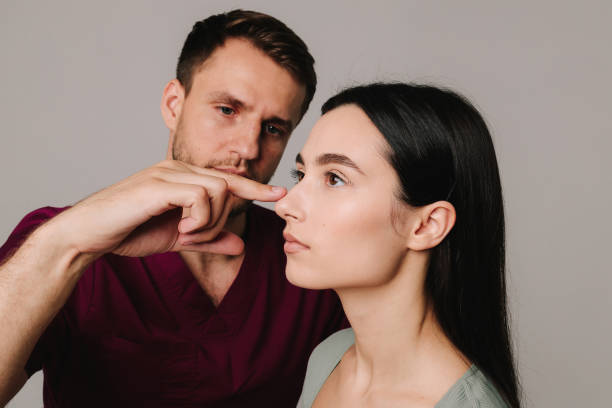The Decline of Medical Tourism to Turkey
For over a decade, Turkey held an unshakable reputation as the global capital of affordable hair transplants. Cities like Istanbul saw tens of thousands of patients from across the Middle East—particularly Saudi Arabia—fly in for hair restoration procedures that promised low prices and quick results. However, this once-dominant trend is undergoing a significant shift. Increasingly, Saudis are opting for local clinics in Riyadh, Jeddah, and Khobar rather than traveling abroad. This change reflects not just national pride, but evolving expectations around safety, customization, follow-up care, and luxury medical experiences. The shift is cultural, clinical, and logistical—and it is reshaping the hair restoration landscape across the Gulf.
Personalized Care and Local Expertise
One of the primary reasons behind this change is the rising standard of medical specialization within Saudi Arabia. Local clinics are no longer playing catch-up with international centers—they’re setting new benchmarks. Today, Saudi dermatologists and hair transplant surgeons are trained in Europe, North America, and the UAE, bringing back not only the latest techniques but also an understanding of local aesthetic preferences and genetic hair patterns.
Saudi patients often require treatment plans tailored for Middle Eastern hair types, which may be curlier, denser, or more prone to specific forms of alopecia. In Turkey, where clinics often operate on high-volume models and treat dozens of patients daily, nuanced personalization can fall short. In contrast, local clinics in Riyadh offer bespoke hairline designs, Arabic-language consultations, and culturally sensitive care environments that patients can trust. This familiarity with Saudi beauty standards and expectations gives local practitioners a distinct advantage.
Convenience and Continuity of Care
Traveling abroad for surgery introduces significant challenges—not just during the trip itself, but in the crucial months of post-operative recovery. Many Turkish clinics offer limited follow-up options once the patient returns home, often relying on WhatsApp messages or generic advice. If complications such as folliculitis, shock loss, or donor area scarring arise, patients are left scrambling for local support with no continuity of care. Choosing a Hair Transplant in Riyadh, by contrast, ensures access to ongoing in-person follow-ups, immediate clinical intervention if needed, and a seamless continuity of care that supports long-term success.
By choosing a Saudi clinic, patients enjoy the comfort of ongoing support. Follow-up appointments, PRP boosters, touch-up sessions, and even cosmetic refinements can be handled easily without the burden of international travel. This convenience is especially important for professionals with demanding careers, parents, and those who cannot afford to spend a week or more abroad recovering. The ability to maintain a relationship with the same medical team over time—combined with quick access to advanced diagnostics—makes local care far more attractive in the long term.
Saudi Arabia’s Rising Aesthetic Infrastructure
Saudi Arabia has seen a significant expansion of private medical infrastructure, particularly in the aesthetic field. High-end clinics in Riyadh, Jeddah, and Dammam now offer not just hair transplants but full-spectrum cosmetic services in spa-like environments. Facilities are designed with privacy in mind, offering VIP entrances, gender-segregated waiting areas, and luxury amenities that rival the most exclusive wellness clinics in Europe.
These centers utilize cutting-edge technologies, such as robotic-assisted follicular extraction, sapphire blade incisions, and stem-cell-enhanced healing—all hallmarks of modern, minimally invasive hair restoration. This tech-driven, patient-focused approach has positioned Saudi clinics as viable alternatives to Turkey, especially for clients who value luxury and clinical excellence over budget pricing.
Nationalism and Shifting Public Sentiment
The rising preference for local hair transplants also reflects a broader cultural shift. As part of Vision 2030, the Saudi government has prioritized the development of a world-class healthcare system that supports both citizens and residents. This focus has fueled a sense of national confidence in local institutions, particularly among the younger generation who are proud to support homegrown talent and businesses.
In this context, choosing a Saudi clinic is often viewed not just as a medical decision, but as a statement of trust in national expertise and pride in domestic progress. As social media influencers and public figures begin to share their local transplant journeys with openness, the public narrative around medical tourism is changing. Going abroad is no longer seen as the superior choice—in fact, staying home is increasingly seen as the more advanced and responsible option.
Language, Trust, and Cultural Alignment
One often-overlooked advantage of staying local is the ability to communicate freely. Language barriers in Turkey can complicate the patient experience, especially during consultations where expectations, medical histories, and procedural steps must be clearly understood. Miscommunications around hairline design, graft count, or recovery care can have lasting consequences.
In Saudi Arabia, patients can speak in Arabic with doctors and nurses who understand not only the language but also the cultural nuances. Expectations around modesty, privacy, and religious observance are intuitively respected in a way that foreign clinics may not fully grasp. This alignment leads to greater patient comfort, better decision-making, and more satisfying results. For female patients, especially those wearing hijab or niqab, this culturally aligned care is not just a preference—it’s a necessity.
A New Understanding of Value
While Turkey is often promoted as the cost-effective option, the reality is that price is no longer the only—or most important—factor for many Saudis seeking hair restoration. Local clinics offer packages that, while priced higher than Turkish counterparts, include benefits such as pre-surgical evaluations, tailored regenerative treatments like PRP or exosomes, and advanced imaging assessments.
In other words, the value proposition has shifted from quantity to quality. Riyadh’s patients are more informed than ever before. They research procedures, understand the risks of high-volume “transplant factories,” and seek clinics that emphasize outcomes over speed. Local providers are adapting to this mindset by offering clear pricing, transparent consultation processes, and results that speak for themselves.
The Role of Digital Transformation
Saudi Arabia’s hair transplant industry is also being reshaped by digital engagement and online education. Instagram, TikTok, and Snapchat are filled with Saudi doctors sharing before-and-after galleries, procedure walkthroughs, and client testimonials. Clinics have embraced teleconsultations, digital scalp mapping, and online follow-up systems that rival those in Europe.
This openness has demystified the hair transplant process for a broader demographic and empowered more patients to choose local providers based on peer reviews, visibility, and accessibility. By contrast, many Turkish clinics still rely on agency-driven marketing and third-party brokers, a model that increasingly feels outdated to the digitally native Saudi population.
Local Innovation in Adjunct Therapies
One reason Saudis are staying local is the emergence of next-gen adjunct therapies that complement and enhance hair transplant outcomes. Clinics in Riyadh and Jeddah now offer high-concentration PRP, low-level laser therapy, cryotherapy, stem-cell boosters, and customized topical serums that are calibrated to local environmental and genetic factors.
These innovations not only improve graft survival but create a comprehensive scalp ecosystem designed to prevent future thinning. By accessing these therapies locally, patients can maintain their results for the long term, something that is difficult when the transplant is done abroad with no follow-up structure in place.
The Impact of Pandemic-Era Shifts
The COVID-19 pandemic played a significant role in reinforcing this local-first mindset. With international travel restricted, many patients who had planned to go to Turkey were forced to explore local options—and discovered that the quality of care at home had quietly reached world-class standards. The positive experiences from these procedures have had a lasting impact, building patient trust and loyalty that continues to erode the appeal of outbound medical tourism.
In a post-pandemic world, convenience, health safety, and trusted networks have become more valuable than rock-bottom pricing. Saudi clinics, with their robust safety protocols and government oversight, are now viewed as not only safer—but more accountable to local standards.
Conclusion: A Movement Rooted in Trust, Quality, and National Growth
The decline of Saudi medical tourism to Turkey isn’t a rejection of foreign care—it’s a reflection of how much the local healthcare and aesthetic landscape has matured. With its blend of clinical precision, cultural alignment, and luxury care, Saudi Arabia is becoming the preferred destination for its own citizens seeking hair restoration.
As Riyadh, Jeddah, and other cities continue to invest in world-class medical infrastructure, and as doctors gain global experience while retaining local values, more Saudis are discovering that the best place for transformation might just be in their own backyard. In doing so, they’re not only reclaiming control over their personal journeys—they’re actively participating in a national renaissance of healthcare excellence.


